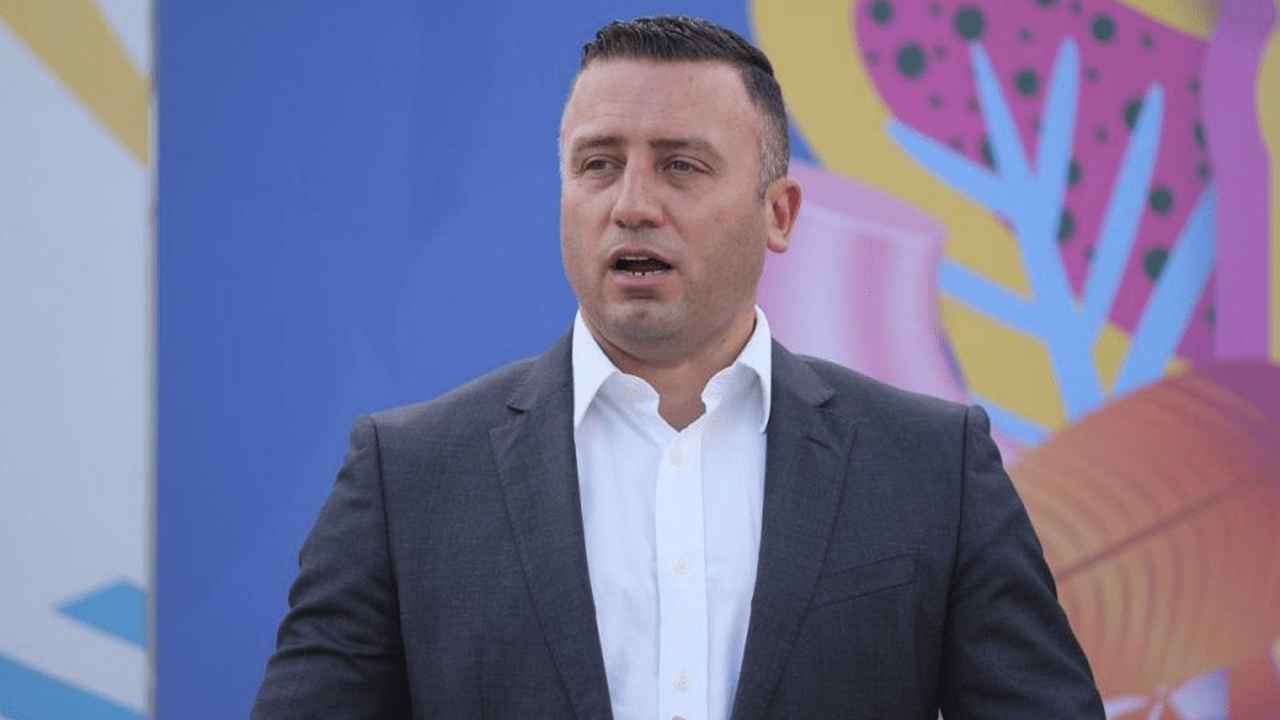Tourism Minister Faces Scrutiny Over €56 Million

In a recent press conference, Tourism Minister Clayton Bartolo faced tough questions regarding the allocation of €56 million in sponsorships and events, amidst growing concerns over the financial stability of the Malta Tourism Authority (MTA). The MTA, despite receiving a substantial €122 million subvention, registered a deficit of €2 million, raising eyebrows among industry experts and the public alike.
The minister, however, provided limited answers during the press conference, choosing to stonewall further inquiries regarding the large sum allocated for sponsorships and events. This lack of transparency has only intensified public scrutiny and calls for increased accountability in the management of taxpayer funds.
The sizeable expenditure on sponsorships and events, while potentially valuable for promoting tourism and bolstering the country’s image, has left many questioning its effectiveness and overall impact on the industry. With such a significant allocation, concerns arise regarding the evaluation of returns on investment and the prudent use of public resources.
Moreover, the MTA’s financial performance, as revealed by the €2 million deficit, has sparked further concerns about its ability to effectively manage its finances. Despite the substantial €122 million subvention, the deficit suggests potential gaps in financial planning and expenditure control, which demand immediate attention.
Industry experts and stakeholders are urging the Tourism Minister and the MTA to adopt a more transparent and accountable approach to financial management. Robust mechanisms for tracking and evaluating the outcomes of sponsorships and events should be put in place to ensure that public funds are allocated wisely and generate tangible benefits for the tourism sector.
The current circumstances highlight the need for open dialogue and a proactive approach to address these financial challenges. By engaging in a constructive and transparent manner, the Tourism Minister and the MTA can rebuild public trust and demonstrate their commitment to responsible fiscal management.
As Malta’s tourism industry plays a vital role in driving economic growth and creating employment opportunities, it is crucial that the government and the MTA work together to address these concerns promptly. The public deserves clarity and assurance that their tax contributions are being utilized judiciously to enhance the tourism sector’s sustainability and success.
In the coming weeks, it remains to be seen how the Tourism Minister and the MTA will respond to these pressing issues. The handling of financial matters and the transparency demonstrated will undoubtedly have a significant impact on the perception of the industry and the trust placed in its leadership.
As developments unfold, it is vital that all stakeholders, including the public, industry professionals, and the government, engage in a constructive dialogue to ensure the long-term prosperity and viability of Malta’s tourism sector.
FAQs
What is the purpose of the €56 million spent on sponsorships and events in the tourism sector?
The allocated funds are intended to promote Malta as a desirable tourist destination, attract visitors, and enhance the country’s image on a global scale. Sponsorships and events serve as platforms to showcase Malta’s unique offerings, cultural heritage, and tourism-related initiatives.
How are sponsorships and events evaluated for their impact on the tourism industry?
The evaluation process involves assessing key performance indicators such as increased tourist arrivals, enhanced brand recognition, positive media coverage, and economic benefits generated by the sponsored activities and events. These evaluations help determine the effectiveness and value of the investments made.
What measures are in place to ensure the responsible management of public funds allocated for sponsorships and events?
The Ministry of Tourism and the Malta Tourism Authority (MTA) are responsible for overseeing the allocation and management of public funds. They are expected to adhere to strict financial regulations, conduct regular audits, and ensure transparency in their decision-making processes to maintain fiscal responsibility.
How does the deficit of €2 million impact the operations of the Malta Tourism Authority?
The deficit signifies a shortfall between the MTA’s expenses and its revenues, which could potentially affect the agency’s ability to undertake new initiatives, marketing campaigns, and other programs aimed at boosting the tourism sector. It highlights the need for tighter financial management and resource allocation.
What steps will the government take to address the deficit and improve the financial performance of the Malta Tourism Authority?
The government, in collaboration with the MTA, will need to conduct a thorough analysis of the authority’s financial practices. This may involve implementing cost-cutting measures, optimizing revenue streams, and enhancing financial planning strategies to ensure the MTA’s long-term financial sustainability.
How will the lack of transparency in answering questions impact public trust in the Tourism Minister and the Malta Tourism Authority?
The absence of clear and detailed responses regarding the €56 million sponsorship and event spending raises concerns about transparency and accountability. This lack of openness may erode public trust and fuel skepticism regarding the management of taxpayer funds within the tourism industry.
What role does public trust play in the success of the tourism sector?
Public trust is crucial for the sustainability of the tourism sector. Travelers seek destinations that are perceived as trustworthy, well-managed, and reliable. A lack of trust can negatively impact visitor numbers, investor confidence, and the overall reputation of the country as a tourism destination.
Can the Malta Tourism Authority provide a breakdown of how the €56 million was allocated?
Unfortunately, the detailed breakdown of the €56 million allocation for sponsorships and events has not been provided. Clarity and transparency regarding the specific projects, initiatives, and organizations supported by these funds are essential for fostering trust and accountability.
How will the government address the public’s concerns regarding the allocation of €56 million?
The government should recognize the public’s concerns and commit to greater transparency. By providing a comprehensive breakdown of the allocation, including the criteria for selecting sponsorships and events, the government can alleviate doubts and demonstrate its commitment to responsible financial management.
Will there be an independent investigation into the financial management of the Malta Tourism Authority?
At this point, it is unclear whether an independent investigation will be conducted. However, given the public’s concerns and the need to restore confidence, an independent review may be necessary to assess the financial practices and decision-making processes of the MTA.
How will the government ensure that sponsorships and events provide tangible benefits for the tourism sector?
The government should establish clear guidelines for evaluating the effectiveness and impact of sponsorships and events. By setting specific objectives, monitoring key performance indicators, and conducting regular assessments, they can ensure that these activities generate tangible benefits and contribute to the growth of the tourism industry.
What steps can the public take to stay informed about the allocation of public funds in the tourism sector?
The public can engage with relevant news sources, attend public meetings or consultations, and actively participate in discussions surrounding tourism industry finances. By staying informed and holding policymakers accountable, citizens can play a role in promoting transparency and responsible financial management.
How will the government address concerns raised by industry experts regarding the financial deficit of the Malta Tourism Authority?
The government should engage in open dialogue with industry experts to understand their concerns and seek their input in developing strategies for addressing the deficit. Collaborative efforts can lead to the implementation of effective solutions and the cultivation of a healthier financial environment for the MTA.
What impact might the deficit have on the employment opportunities within the tourism sector?
If the deficit remains unresolved, there is a potential risk of reduced funding for various tourism initiatives and projects. This could, in turn, affect the creation of employment opportunities within the sector, hindering its ability to contribute to the overall economy and the livelihoods of individuals working in tourism-related fields.
Will the government consider redirecting funds from sponsorships and events to address the MTA’s deficit?
While the reallocation of funds is a potential option, it should be approached with caution to avoid undermining the promotional efforts of the tourism sector. A balanced approach that addresses the deficit without compromising the industry’s growth potential is crucial.
How can the government rebuild public trust in the tourism sector following these financial challenges?
Rebuilding public trust requires a multi-faceted approach. The government must prioritize transparency, actively address concerns, implement sound financial practices, and engage in open dialogue with the public and industry stakeholders. By demonstrating a commitment to responsible financial management, trust can gradually be regained.
What role can the media play in ensuring accountability within the tourism sector?
The media plays a vital role in holding public officials and institutions accountable. Through investigative journalism, reporting on financial matters, and asking critical questions, the media can shed light on potential issues, stimulate public discourse, and advocate for transparency and responsible financial management.
Will the government consider implementing stricter financial oversight and regulations for the Malta Tourism Authority?
The government should consider reviewing existing financial oversight mechanisms and regulations to ensure they are robust and effective. Strengthening financial controls, conducting regular audits, and providing greater clarity in reporting can contribute to improved financial management within the Malta Tourism Authority.
How will the government communicate updates and progress in addressing the financial challenges faced by the tourism sector?
The government should establish effective communication channels to keep the public informed about developments in addressing the financial challenges. Regular updates through press conferences, official statements, and public reports will help maintain transparency and accountability throughout the process.
What can the tourism industry do to address the concerns raised and work towards financial stability?
Industry stakeholders can play an active role by advocating for responsible financial practices, participating in discussions with the government, and offering suggestions for improving financial stability. Collaboration between the public and private sectors is crucial in finding sustainable solutions that support the long-term success of the tourism industry.
Recommended Posts

The Maltese Cross Symbolism
May 17, 2024

Malta’s Coastal Drives for Road Trippers
May 17, 2024

Overview of Business Finance in Malta
May 17, 2024




